New research aims to bring suicide out of the shadows
GROUNDBREAKING new research aims to shine a light on how to support people in suicide crisis, revealing everyday Aussies want to help.
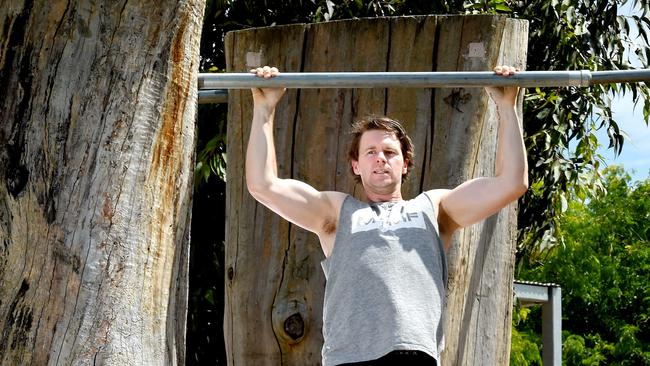
VIC News
Don't miss out on the headlines from VIC News. Followed categories will be added to My News.
AUSSIES are renowned for helping a mate. Now, groundbreaking research from a national beyondblue survey reveals everyday Australians want to support those in suicide crisis.
The survey has found we want to help family and friends at risk but are often unsure how to identify and respond to the warning signs.
The data, to be released next week, also reveals 40 per cent of survey respondents believe suicide happens without warning; 30 per cent feel most people at risk of suicide show no sign; 30 per cent think discussing suicide could encourage a person to consider planning suicide; and half
of participants say assisting someone at risk requires the skills of a professional.
Beyondblue chief executive Georgie Harman says around 3000 Australians from all walks of life participated in the survey, from members of the community to those who are exposed to or have attempted suicide.
“We wanted to know where they were at, what they knew, how they felt about suicide and their role in suicide prevention, how confident they were, their willingness to help and likelihood to act to support someone who may be at risk of suicide,’’ Harman says.
“What was so compelling and important was that we also asked people who’ve had direct exposure to suicide — people who’ve been bereaved, people who’ve attempted suicide, carers of people who live with ongoing suicidal thoughts — what is and isn’t helpful.
“The combination of those two perspectives gives us an evidence base that is absolutely representative of what the community is feeling and thinking and I think that’s incredibly powerful.
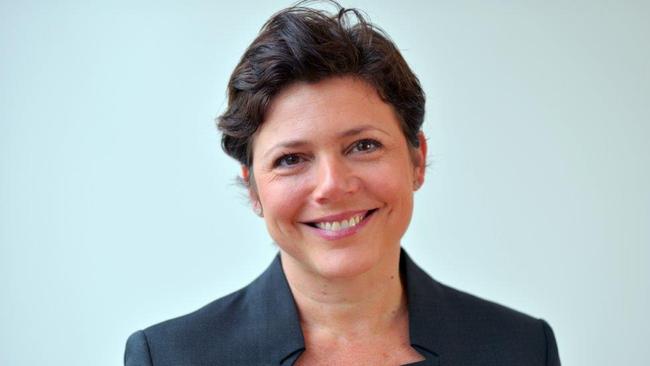
“It gives us a really solid evidence base to design how we communicate in the future, how we encourage people to play a role, give people confidence, tools, information and language to have a good, safe and helpful conversation with someone who is at risk of suicide.”
Harman says what struck her most was Australians’ positive attitude towards their role in suicide prevention.
“I took great comfort in it,’’ she says. “We’re generally confident to support someone we know well who’s in really severe distress and suicidal crisis and that’s a great starting point which signals to us at all levels, whether you work in the mental health sector, in government, are a community member or you run a business, that people want to bring suicide out of the shadows.
“We have to have a different conversation about suicide. Where people’s confidence levels and willingness drops off was in the lead-up to that crisis, where they weren’t that literate, aware or knowledgeable about the more subtle signs.
“Concerns through our research were if someone’s in crisis and actively thinking about ending their life, they don’t often verbalise that directly, but what they will show is behavioural changes that will signal that they are at suicidal risk.
“This shows us that we need to focus on that lead-up and really build the confidence, knowledge and skills of the community to know what to look out for and know what to do.”
Research also revealed what people at risk of suicide don’t want to hear and what is not helpful.
Language is important and Harman says people don’t want to be told that suicide is wrong and will hurt family and friends. Comments like, “You’ve got so much going for you” should also be avoided.
“What came through really strongly and is something we can all do is people want us to listen with empathy, show we care, they don’t need a lecture,’’ Harman says.
“This isn’t about blaming people for missing the signs. Suicide is an incredibly complex issue, it’s deeply personal, it’s deeply individual and that’s why we believe this research can be a really important baseline for us to support friends, family, workmates, all of us going forward to have greater confidence and know how to have a conversation that can really make a difference.
“There’s a willingness and readiness to help. The community understands suicide is a major, national problem that we don’t seem to have made a major breakthrough on, so it’s about what can we do differently.
“And for us, this research gives us a really strong basis to mobilise the community in a different way and they’re ready to help.”
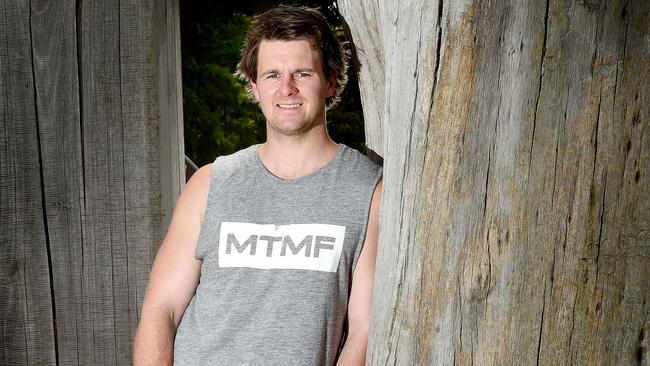
FIT TO FIGHT DEMONS
PERSONAL trainer Shane Kelton credits fitness with turning his life around — and now it’s a gift he’s sharing with others.
After tearing his kidney playing footy, the 29-year-old put on 15kg and fell into the depths of depression. Then he hit the gym, and while the scales didn’t improve, his mind did.
“The first six months I didn’t lose any weight but I felt the mental health benefits and began to feel confident,” the former landscaper says. “I became a trainer because I wanted other people to see that fitness is a good way to help mental health and mental illness.
“I’ve finally achieved that goal and can now help people who are in a similar situation to what I was.”
Kelton was diagnosed with depression and anxiety at 21 after years of dark, frightening thoughts.
“From the age of 12, I was experiencing a lot of nightmares, which often had me attempting to take my own life in the nightmare and people laughing at me,” he says. “I had a lot of suicidal thoughts and had no idea what was going on. I felt like I was crazy, I felt like I was weird.
“I confided in one person where I’d spend hours in my room crying, but I just thought I was crazy and different, and that was the hardest part about growing up, I didn’t know what was going on.
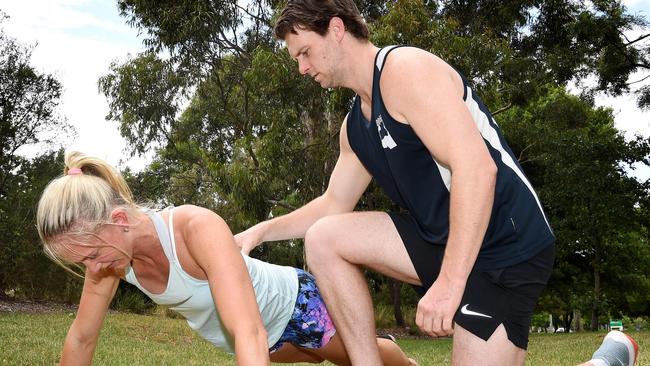
“When I got diagnosed at 21, I attempted to take my own life but being diagnosed with depression was a relief, a weight off my shoulders. I was able to put a plan into action.
“Opening up and the support that came after that was huge. People would go out of their way to check if I was OK.”
Kelton was a weekend binge drinker and alcohol fuelled his deteriorating mental state.
“In those years, because I didn’t understand what my head was going through, I wanted to drink to escape that feeling, but it had an opposite reaction come the early hours of the morning,’’ he says. “I knew I’d have to go home eventually and stop drinking and I knew the feelings would come back.
“I’d get home and be wanting to end my life again, but those thoughts were a lot scarier because I’d been drinking and didn’t feel in control.
“I do occasionally drink now, but I know now the effect alcohol can have on me mentally so it’s about managing it and having a plan.”
Kelton has wise words for those struggling like he was.
“Speak to someone you trust, go to the doctor and get a mental health plan in place. Speaking up is definitely key and there’s a lot more avenues for help as well as understanding and awareness these days.”
LOW POINTS IN HIGH LIFE
FROM the outside, it looked like Rebecca Moore was living the high life.
As a flight attendant, she flew all over the world, stayed in glitzy hotels, worked hard and partied harder, but behind the whirlwind lifestyle, fuelled by drugs and alcohol, she was breaking inside.
“At age 18 I had a close friend suicide,” Moore says. Around the same time another friend went missing. Her body was found three years later.
“That transition from teenager to early adulthood was really dark and that’s when all the self-medicating started with drugs and alcohol.”
At 23, Moore landed a job with Ansett and began the career she’d dreamt of since she was seven years old.
“Even though I was living this idyllic lifestyle of five-star hotels and first-class travel, I was miserable,’’ she says. “I’d gone undiagnosed for a long time.
“There was post-traumatic stress disorder there as well — I was in a really bad car accident just after Ansett collapsed, the ambulance arrived and thought it was a fatality.
“Fast-forward 25 years and I can see now what was going on. I’ve been sober for nine years now and I can see more clearly the things that are important and that’s your health, family and friends.”
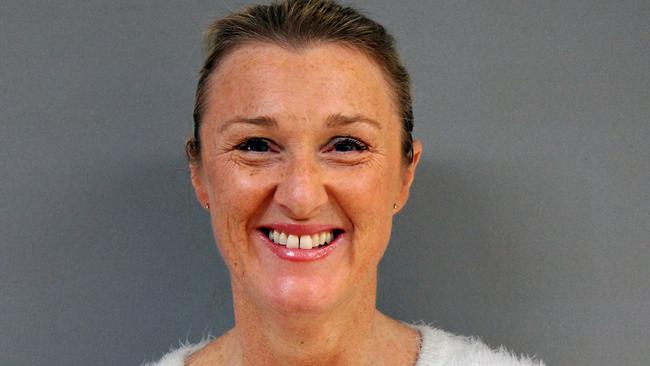
A move to the country and meeting husband Greg 13 years ago was the turning point.
“I partied up to pussy’s bow, hanging off the ceiling, crowd surfing at the Big Day Out and ending up in hospital,” she says. “It’s been a very wild ride, so living this clean, country lifestyle suits me just fine.
“I met my husband and from there things went upwards. It was really hard for a while. He’d say I needed help and I’d say I was fine until I acknowledged I needed to get help.
“Having kids was the major catalyst and that was when it was time to get my s--- together and I’ve never looked back.
“My husband is my rock, he’s walked the path with me and my kids are the best. They’ve saved my life without a doubt.”
Moore says meditation is as important as her daily medication and she has just completed an advanced diploma in nutritional medicine.
“Once you get through all the darkness, it can be so rewarding to turn that lifestyle on its head and live a healthy life wanting to pay it forward and help other people,” she says.
Moore pays it forward with her talks through beyondblue and her advice is to simply ask and listen.
“I’ve made suicide attempts before, I’ve had friends who have taken their lives, I’ve walked down that path and I know there’s light at the end of the tunnel,’’ she says.
“I still fall in the high-risk category, but I know I have the tools now to manage that and know how to deal with my depression. I really stress the importance to other people when I do my talks to look out for your mates and your family.
“If they’re acting out of character, give them a call and go have a cuppa, a quiet beer or a walk in the park and say, ‘Mate, you just don’t seem yourself. Is everything OK?’ A friend did that for me a few years ago and I still thank her for it.”
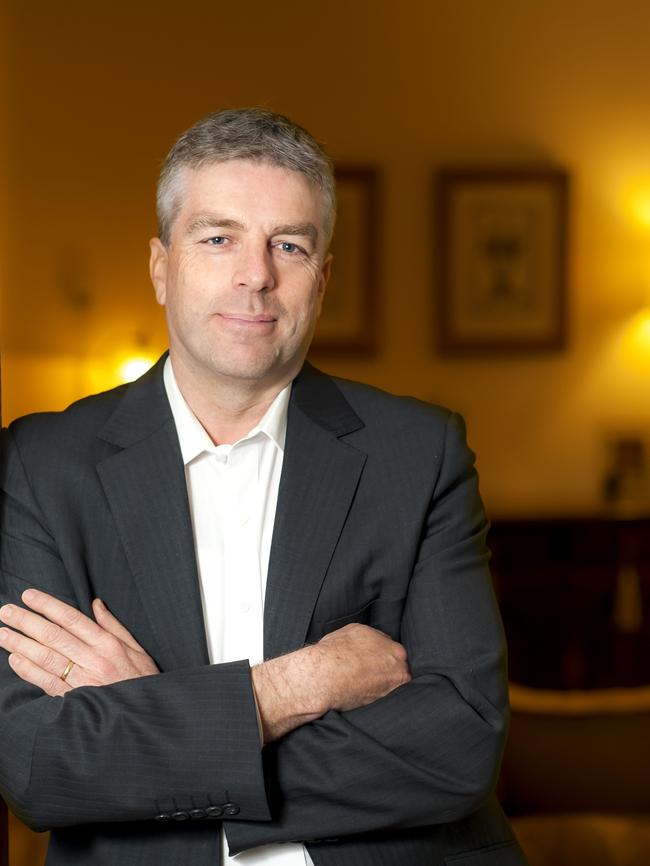
TACKLING THE RIPPLE EFFECT
TONY McManus knows all too well the ripple effect of suicide.
In 2005, he lost his younger brother Mick, who wasn’t just his blood but his workmate in the family real estate business.
While Mick’s death had a huge impact on the family, business and regional community, McManus was fighting his own battle with depression, a marriage breakdown and sleep problems.
“At the time Mick passed, I was also being treated for depression and the compounding fact was he’d taken his own life and I felt I couldn’t really talk about how I was feeling at the time because I didn’t want to scare those around me,’’ McManus says.
“I wasn’t comfortable confiding in immediate family, given what was fresh in our minds, so I found the better solution for me was talking to mates.”
While grieving and dealing with his own mental health, McManus became “pretty fired up to help beyondblue in its mission to increase awareness and reduce stigma.”
“I lobbied Frank Costa from the Geelong Football Club to propose that we get the Cats to play another club for the beyondblue Cup because the AFL’s a great vehicle to get the issue out there,” he says. “Frank was all over it and it was a no-brainer to pick Hawthorn because Jeff Kennett was president and also the chairman of beyondblue at the time.
“That was 2006 and we were focused on what to do in the aftermath of a suicide and we found by putting on a public forum associated with the beyondblue Cup and by doing our own family-based depression awareness evening, it provided this incredible forum for all those touched by the huge ripple effect of suicide to get together, learn a bit about the issue and go down the healing path.”
McManus, 55, believes while suicide often happens without warning, we can support people at risk.
“In the aftermath, there’s a lot of asking, ‘What did I miss?’, ‘What should I have done?’ And I think we learn not to beat ourselves up about that because often people who take their own life don’t communicate it,’’ he says.
“Now because of organisations like beyondblue promoting a message, people have more confidence asking, intervening and acting on signs if you’re worried about changes in their behaviour. Mildly offending someone is better than putting together their eulogy.
“If you can do some research and arm yourself with information and tools, you can literally save lives.”
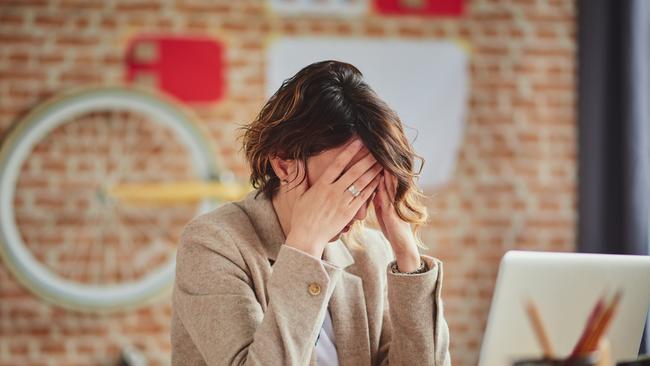
INDICATORS A PERSON MIGHT BE AT RISK OF SUICIDE
■ Non-verbal indicators include social withdrawal, a persistent drop in mood, disinterest in maintaining personal hygiene or appearance, uncharacteristically reckless behaviour, poor diet changes, rapid weight changes, being distracted, anger, insomnia, alcohol or drug abuse and giving away sentimental or expensive possessions.
■ Indirect verbal expressions include hopelessness and failing to see a future, believing they are a burden to others, saying they feel worthless or alone and talking about their death or wanting to die.
Recommended action
■ Ask the person how they are feeling and explain changes you have noticed in their behaviour.
■ Listen without judgment and without trying to advise them how to “fix” their situation.
■ Ask direct questions about whether the person has plans to take their life.
■ Show support and suggest they seek help from a GP or mental health professional.
SOURCE: BEYONDBLUE RESEARCH BY THE UNIVERSITY OF MELBOURNE AND WHERE TO RESEARCH-BASED CONSULTING
BY THE NUMBERS
■ 2866 people died by suicide in Australia in 2016.
■ Around eight people die by suicide each day in Australia.
■ Men are at least three times more likely to die by suicide than women.
■ Suicide kills more than twice as many people in Australia as the road toll each year.
■ Suicide is the leading cause of death for Australians aged 15-44.
■ The highest suicide rate among men is in the age group 85 and over. For females, it is 45-49.
If you have personal problems, Mental health professionals are available at the beyondblue support service 24 hours a day on 1300 224 636, for online chat 3pm-midnight daily at beyondblue.org.au/get-support or Lifeline on 13 11 14


